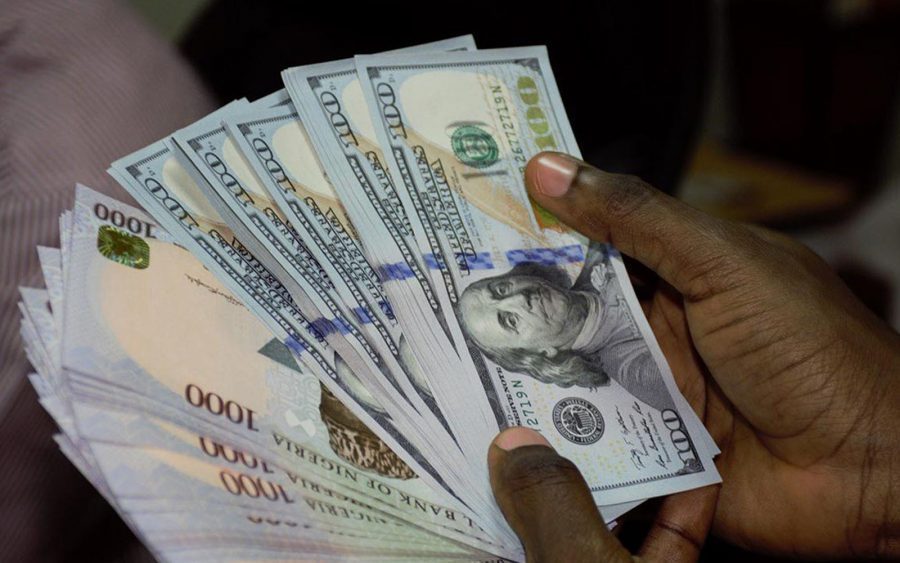
CBN’s FX Market Reforms Driving Naira Stability
Lawal Dahiru Mamman,
Since the announcement of the unification of the exchange rate in May 2023, the naira has been in a state of precipitous decline, losing value with each passing day. According to pundits this was no surprise because the naira has like fuel being subsidised with a humongous amount that should be channelled to other economic and developmental activities.
The onus then fell on the Central Bank of Nigeria (CBN) headed by Olayemi Cardoso to do everything possible within the ambit of the law for the naira to survive the disastrous decline in value.
Policies after policies seemed to not be providing answers at the time but, some level of sanity has been recorded thanks to the policies which were initially condemned.
Last year, the Central Bank of Nigeria (CBN) implemented a series of measures aimed at stabilising the foreign exchange (forex) market, including tightening regulations within the sector to prevent illegal transactions and promote transparency this, became necessary as the market have often been rumoured to be operated by bourgeoisies who have exploited the market for self-enrichment.
In order to promote transparency and stability the CBN reintroduced the Nigeria Foreign Exchange Code (FX Code), a comprehensive framework that has significantly reduced speculative trading activities and opaque market practices, thereby enhancing the overall integrity.
This reintroduction became necessary because speculative trading contributes to exchange rate fluctuations, making it challenging for businesses and individuals to predict future costs and revenues. This practice also creates market instability, leading to sudden and significant changes in exchange rates, and diverts resources away from productive activities, such as investing in businesses or infrastructure.
On the social front, speculative trading leads to job losses, particularly in industries heavily reliant on exports or imports. It also exacerbates poverty, especially among vulnerable populations such as low-income households. Furthermore, market instability stemming from the practice can stunt economic growth by creating uncertainty and instability in the market.
Additionally, the CBN took decisive action to curb forex speculation by abolishing the ±2.5 per cent cap on interbank FX transactions to promote greater flexibility and transparency in the market.
Additionally, it collaborated with the Economic and Financial Crimes Commission (EFCC) to crack down on illegal forex dealings, thereby ensuring that all foreign exchange transactions are conducted in a legitimate and transparent manner.
In March 2024, the Central Bank of Nigeria (CBN) took another significant step towards reforming the foreign exchange market by revoking the licenses of 4,173 Bureau De Change (BDC) operators, a move aimed at sanitising the sector from all illegalities and promoting transparency.
Concurrently, it introduced new guidelines, which included a recapitalisation programme for BDCs, requiring tier-one operators to increase their minimum capital base to N2 billion and tier-two operators to N500 million. This exercise is part of broader efforts to reform the BDC sector and enhance its role in Nigeria’s foreign exchange market.
The CBN also mandated that all Bureau De Change (BDC) operators must comply with the new capitalisation requirements by the second quarter of 2025. Failure to meet this deadline will result in operators being considered non-compliant and may lead to their licenses being revoked, effectively rendering them ineligible to operate.
In essence, the CBN is providing a transitional period for BDC operators to adjust to the new capitalisation requirements, which are aimed at strengthening the stability and resilience of the financial system.
Furthermore, the government implemented measures to bolster forex liquidity, thereby supporting the stability of the national currency. To achieve this objective, the government reintroduced the Retail Dutch Auctions (RDAs) system, which enables individuals and small businesses to access foreign exchange at competitive rates.
Additionally, the government issued a $500 million domestic dollar bond, aimed at attracting foreign investment and increasing the supply of foreign exchange in the market to improve forex liquidity, reduce the pressure on the exchange rate, and create a more favourable business environment.
In furtherance of effort, the CBN introduced an amnesty programme, providing a nine-month window of opportunity for Nigerians to declare and deposit previously undisclosed foreign currency holdings in local banks with an aim of encouraging individuals to repatriate their foreign exchange earnings, thereby increasing forex inflows into the country.
This is to boost the nation’s foreign exchange reserves, reduce the pressure on the exchange rate, and promote a more stable and predictable business environment. This measure was also designed to reduce the incidence of illicit financial flows and promote greater transparency in the financial system.
Commercial banks were also granted approval to engage in trading activities with idle foreign exchange (FX) deposits, thereby mobilising dormant funds and injecting liquidity into the market.
In addition to this measure, the CBN introduced new trading guidelines, which included a minimum trade mandate of $100,000, aimed at promoting larger, more transparent transactions and reducing the prevalence of small, fragmented trades.
Last Line
The CBN’s efforts to promote price and exchange rate stability, as outlined by Governor Olayemi Cardoso, are already showing promise. For instance, the naira has recently appreciated in value, closing at N1,533.26 to the dollar at the official CBN window, marking the second-best closing rate since the launch of the Nigeria Foreign Exchange Market System (NFEMS) portal.
As the CBN continues to prioritize monetary policy stability and promote confidence in the economy, the country may see increased economic growth.
A stable naira will likely attract foreign investment, boost trade, and create jobs, ultimately driving economic expansion. With the FG and CBN working together, Nigeria’s economic future looks promising.
